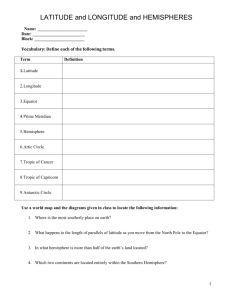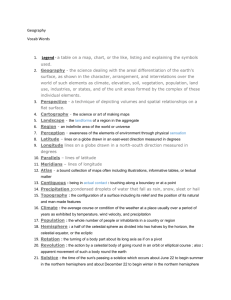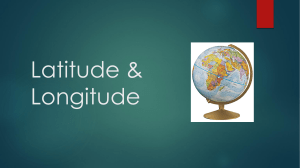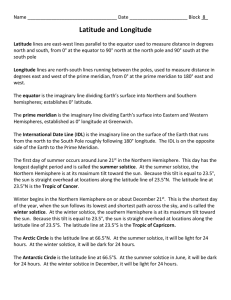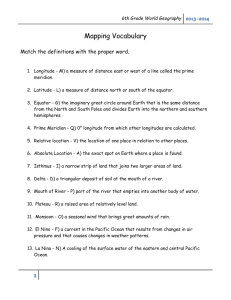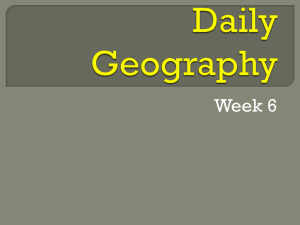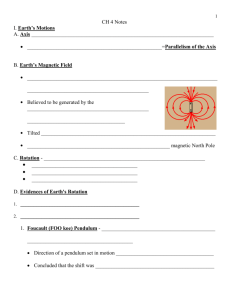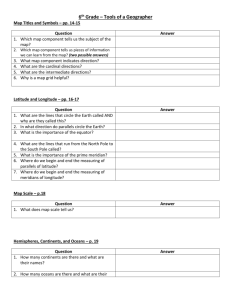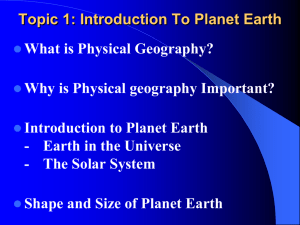Latitude and Longitude short
advertisement
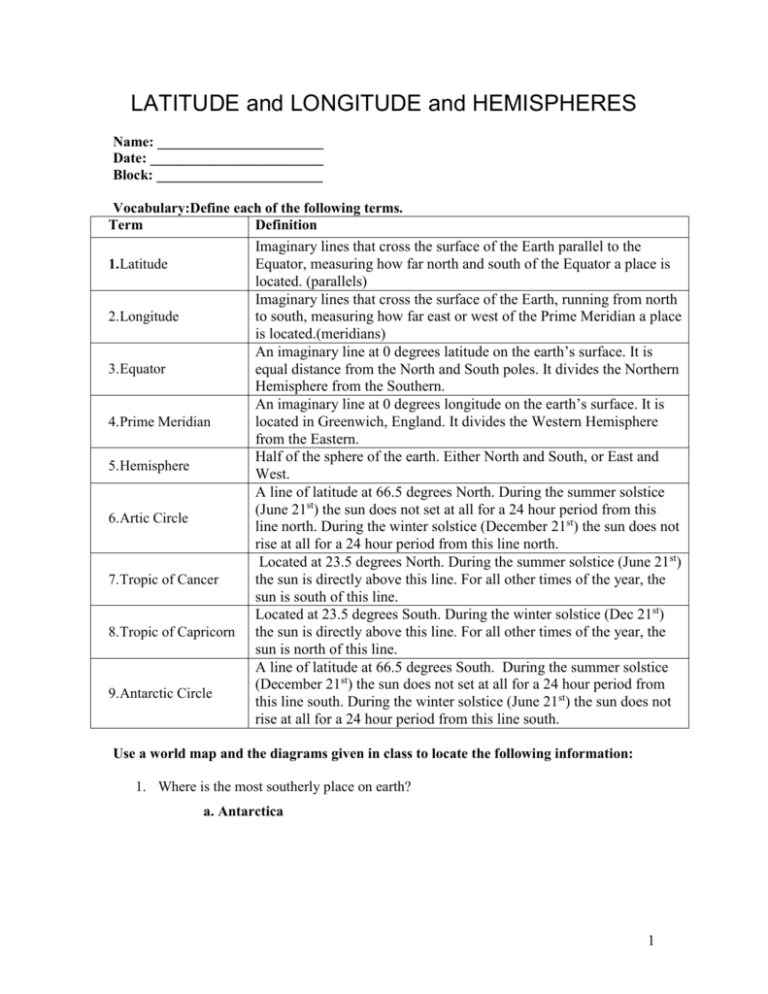
LATITUDE and LONGITUDE and HEMISPHERES Name: _______________________ Date: ________________________ Block: _______________________ Vocabulary:Define each of the following terms. Term Definition 1. Latitude 2. Longitude 3. Equator 4. Prime Meridian 5. Hemisphere 6. Artic Circle 7. Tropic of Cancer 8. Tropic of Capricorn 9. Antarctic Circle Imaginary lines that cross the surface of the Earth parallel to the Equator, measuring how far north and south of the Equator a place is located. (parallels) Imaginary lines that cross the surface of the Earth, running from north to south, measuring how far east or west of the Prime Meridian a place is located.(meridians) An imaginary line at 0 degrees latitude on the earth’s surface. It is equal distance from the North and South poles. It divides the Northern Hemisphere from the Southern. An imaginary line at 0 degrees longitude on the earth’s surface. It is located in Greenwich, England. It divides the Western Hemisphere from the Eastern. Half of the sphere of the earth. Either North and South, or East and West. A line of latitude at 66.5 degrees North. During the summer solstice (June 21st) the sun does not set at all for a 24 hour period from this line north. During the winter solstice (December 21st) the sun does not rise at all for a 24 hour period from this line north. Located at 23.5 degrees North. During the summer solstice (June 21st) the sun is directly above this line. For all other times of the year, the sun is south of this line. Located at 23.5 degrees South. During the winter solstice (Dec 21st) the sun is directly above this line. For all other times of the year, the sun is north of this line. A line of latitude at 66.5 degrees South. During the summer solstice (December 21st) the sun does not set at all for a 24 hour period from this line south. During the winter solstice (June 21st) the sun does not rise at all for a 24 hour period from this line south. Use a world map and the diagrams given in class to locate the following information: 1. Where is the most southerly place on earth? a. Antarctica 1 2. What happens to the length of parallels of latitude as you move from the North Pole to the Equator? a. They get shorter. They are longest at the Equator, but since the earth is round they get shorter as you move more north or south since they do not have as long of a journey to encircle the earth. 3. In what hemisphere is more than half of the earth’s land located? a. The Northern Hemisphere 4. Which two continents are located entirely within the Southern Hemisphere? a. Antarctica and Australia 5. Through which large Canadian island does the Arctic Circle pass? a. Baffin Island 6. Through which North American country does the Tropic of Cancer pass? a. Mexico 7. Which ocean is located north of 66.5N? a. Artic Ocean 8. Which continents extend north of the Arctic Circle? a. Europe, North America, Asia 9. Name a continent that would never have the sun directly overhead at any time of the year. a. Anarctica 10. Which ocean is located completely within the Eastern hemisphere? a. Indian Ocean 11. Within which two hemispheres is North America located? a. Northern and Western 12. Locate the latitude and longitude of the following: City Ottawa, Ontario Latitude 45N Longitude 75W Mexico City, Mexico 19N 99W Rome, Italy 42N 12E Paris, France 49N 2E Bombay, India 19N 73E Tokyo, Japan 36N 140E Cairo, Egypt 30N 31E Kamloops, BC 51N 120W 2
